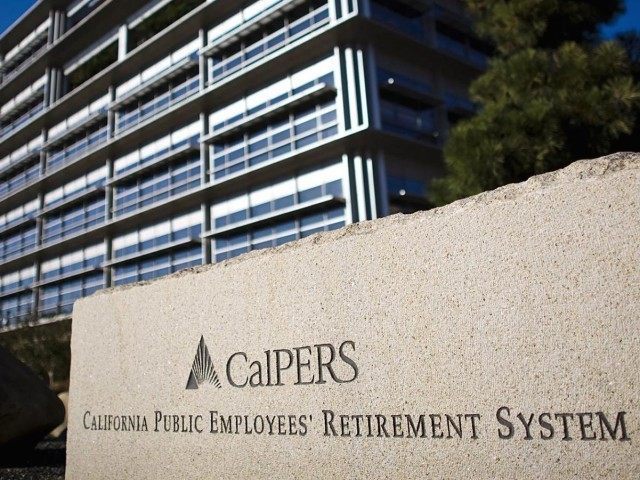Each new California legislative session starts with Republicans yakking about cutting state and local public pension benefits that are over $1 trillion underfunded. But as a minority party and with many of its loudest advocates hypocritically receiving a public pension, reform has just been about yakking. With CalPERS’ actuaries demanding a pension funding increase from $3.7 billion to $7.25 billion by 2020, the state must either cut payroll by 30 percent or find a massive new tax source, like overturning Prop. 13.
California’s massively underfunded pensions are due to both Republican and Democrat administrations granting benefits that are ludicrously more generous than private pensions, but also for hiring actuaries that have been making ludicrously optimistic estimates that investment returns would be high and that retired public employees would live shorter lives to “justify” low employer and employee pension contributions. This “methodology” explains why the state and its workers each only contribute about 6 to 11 percent of their pay to fund the actuarial “normal cost” for their pension liability.
It is well known that “independent actuaries” have been making ludicrous “assumptions” that public pension future investment returns will compound at 7 percent or higher, despite inflation hedging bond yields at just 3 percent. This assumption obfuscates $300 billion of California Public Employee’s Retirement System (CalPERS) underfunding.
But few observers know CalPERS actuaries also “assume” public employees will receive less years of retirement payments because they die on the job more often than taxpayers. This has been cleverly accomplished by using a “presumptuous standard” to define “on the job” death to include heart attacks, cancer, and other common ailments. This assumption obfuscates about $100 billion of CalPERS underfunding.
The net effect impact of these actuarial assumptions has allowed state and local government entities to limit the “legally required” employer and worker bi-weekly public pension plans contribution to between 6 to 11 percent of payroll each.
But this accepted actuary methodology for calculating pension contributions seems to have come to an end after three lawsuits were filed against bankrupt Detroit’s independent actuary Gabriel, Roeder, Smith & Company. The litigation claims damages of $1 billion against the actuary firm and individually against the firms’ officers for providing the “justification” for Detroit to massively underfund their pension liability.
With actuaries now a target, Cheiron and EFI Actuaries, which advises CalPERS, demanded the state increase their pension plan funding increases from their planned +2 percent a year to off-set for inflation, to +10 percent for each to address underfunding. On a compounded basis through 2020, CalPERS pension payments will jump from +12 percent, or $5.3 billion, to +61 percent, or $7.25 billion a year.
Given that the entire state of California payroll is only $10 billion, this means the state either needs to fire 30 percent of its employees, force its workers to contribute about 40 percent of their bi-weekly payroll, or find a spectacularly large tax revenue source.
The only revenue source that could address the size of the pension funding shortfall is Proposition 13. That is why Assemblyman Phil Ting (D-San Francisco) introduced union-backed Assembly Bill 1040 as a 2016 initiative that has the potential of generating a +$4.5 billion increase in annual tax collections. But picking a fight over Prop 13 has the potential to inflame a huge taxpayer backlash against the Democrats.
With only a third of the votes in the Legislature, the Republicans are trying to curry favor with their conservative constituents by making a bunch of noise about pension reform, without the risk of actually passing legislation that would cut public pension benefits. Republicans can also join former San Jose Mayor Chuck Reed and San Diego Councilman Carl DeMaio to get “The Voter Empowerment Act” on the ballot to prevent future pension spiking. Neither effort will cut the existing public pension liability.
But for the first time in 30 years, the union-controlled Legislature in Sacramento cannot stop or obfuscate the new actuary-driven mandate that the state and its workers start paying the true costs to fund their ludicrously rich pensions. If the effort to overturn Prop 13 fails, the unions will be forced to either wipe out a huge portion of state workers’ net pay for pension contributions or negotiate lower pension benefits.

COMMENTS
Please let us know if you're having issues with commenting.